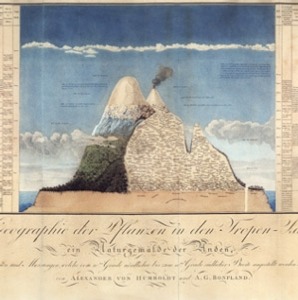1) The number of British women subjected to FGM is much higher than previously thought
A study by City University and Equality Now found that the number of women living in England and Wales who have been subjected to female genital mutilation is twice as high as previously thought: more than 137,000 women.
The government has launched an initiative to step up efforts tackle the problem. Measures include proactive intervention from social workers, and penalising parents who fail to protect their daughters from the practice.
2) There was no jihadist plot in Birmingham schools – but all was not well.
The report by Peter Clarke into the alleged “Trojan Horse” Islamist plot in Birmingham schools came out this week, after being heavily leaked to the press. It found no evidence of terrorism or extremism, but, Clarke said "there are a number of people in a position of influence who either espouse, or sympathise with or fail to challenge extremist views".
Local campaigners have called for the governances problems at the schools to be decoupled from the "terrorism" label.
3) You could one day have seven fingers on each hand instead of five.
Scientists at the Massachusetts Institute of Technology (MIT) have come up with a robotic extension to the human hand. The extra fingers go on either side of the hand – one outside the thumb and the other outside the little finger. Researchers said that they could help people with every day tasks – although this kind of wearable robotics is currently more of interest to specialists rather than mass markets. The next stage is developing a less bulky version.
4) Assisted dying passed its first legislative hurdle
After a ten hour debate in the House of Lords, peers backed the Assisted Dying Bill at second reading. The legislation would make it legal for adults in England and Wales to be given assistance to end their own life and would apply to those with less than six months to live.
It must reach a third stage to complete its passage in the Lords. If it doesn’t, the House of Commons will have the option to pick up the Bill. Whatever happens, the general election in May means that it’s unlikely the bill will ever become law in its current form.
5) For the first time ever, a crowd-funded book is on the Booker short-list.
Paul Kingsnorth’s debut novel, The Wake, was published by Unbound, which invites book-lovers to pledge money towards a book’s publication in exchange for rewards such as having their name included in the credits.
It’s also the first year that the competition was open to writers from anywhere in the world. While Britain still dominates, there are also several American and other writers on the list.
6) It might be barbecue season – but beef is damaging the environment.
A new study suggests that the production of beef is around 10 times more damaging to the environment than any other form of livestock. Beef cattle need 28 times more land and 11 times more irrigation water than pork, poultry, eggs or dairy. It’s been known for a while that beef was the least environmentally friendly meat, but scientists say this is the first study to quantify the comparison.
7) Ethnic minority students are less likely to get university offers
In another piece of research that proves what was already suspected, the London School of Economics found that students from black and ethnic minority backgrounds are less likely to receive conditional university offers than comparable white British applicants. The findings differ from previous studies, which have only found disparities in more elite, older institutions.
8) Children who are brought up religious are more likely to believe in fairy tales
Children who have been exposed to religion find it more difficult to separate fact from fiction than children from secular backgrounds, according to a study published in the July issue of Cognitive Science. The study found that while all children possess "sensitivity to the implausible or magical elements in a narrative", those who had little or no exposure to religion were likely to be far more sceptical about whether a narrative or a character was real.
9) Money might not grow on trees – but Lego can wash up on beaches
A shipping container filled with millions of Lego pieces fell into the sea in 1997, and 17 years later, pieces are still washing up on the beach in Cornwall. An oceanographer tracking the places where the Lego has washed up says that since 1997, those pieces could have drifted 62,000 miles. It's 24,000 miles around the equator, meaning they could be on any beach on earth. By a quirk of fate, the missing pieces are nautical themed.

